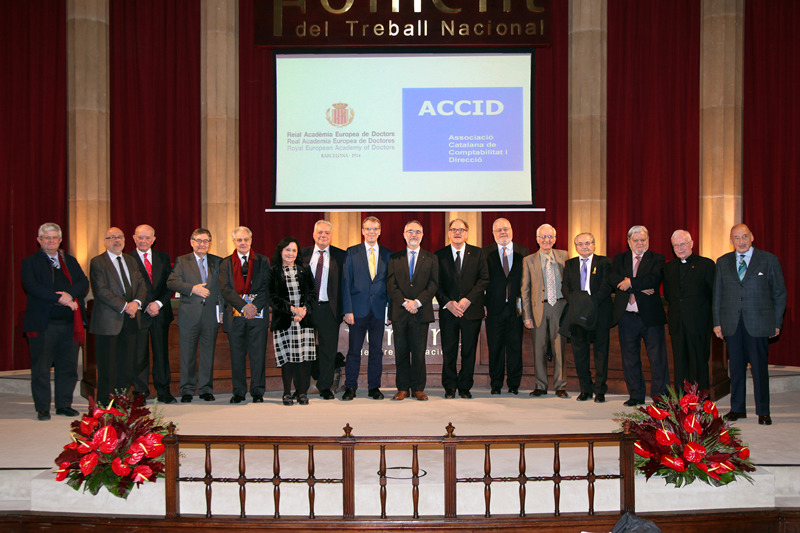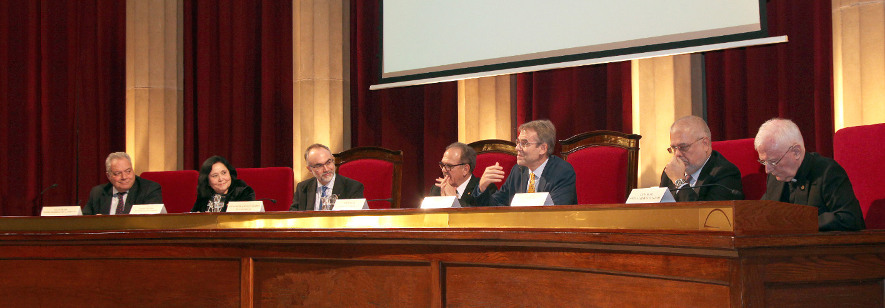After guiding the researcher in his work, the book highlights the moral obligation of the scientist to try to improve society with his contributions
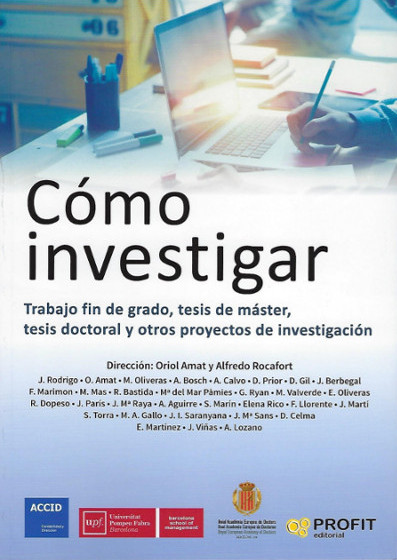 The Royal European Academy of Doctors-Barcelona 1914 (RAED) and the Catalan Association of Accounting and Management (ACCID) presented on January 23 the work “Cómo investigar” (Profit Editorial) (How to research), edited jointly, with versions in Spanish and Catalan and the collaboration of the Barcelona School of Management of the Pompeu Fabra University. The event was chaired by Alfredo Rocafort, president of the RAED, Oriol Amat, president of the ACCID and full academician of the RAED and Arcadi Navarro, secretary of Universities and Research of the Catalan Government. The presentation was attended by academicians and other specialists who have participated in the work.
The Royal European Academy of Doctors-Barcelona 1914 (RAED) and the Catalan Association of Accounting and Management (ACCID) presented on January 23 the work “Cómo investigar” (Profit Editorial) (How to research), edited jointly, with versions in Spanish and Catalan and the collaboration of the Barcelona School of Management of the Pompeu Fabra University. The event was chaired by Alfredo Rocafort, president of the RAED, Oriol Amat, president of the ACCID and full academician of the RAED and Arcadi Navarro, secretary of Universities and Research of the Catalan Government. The presentation was attended by academicians and other specialists who have participated in the work.
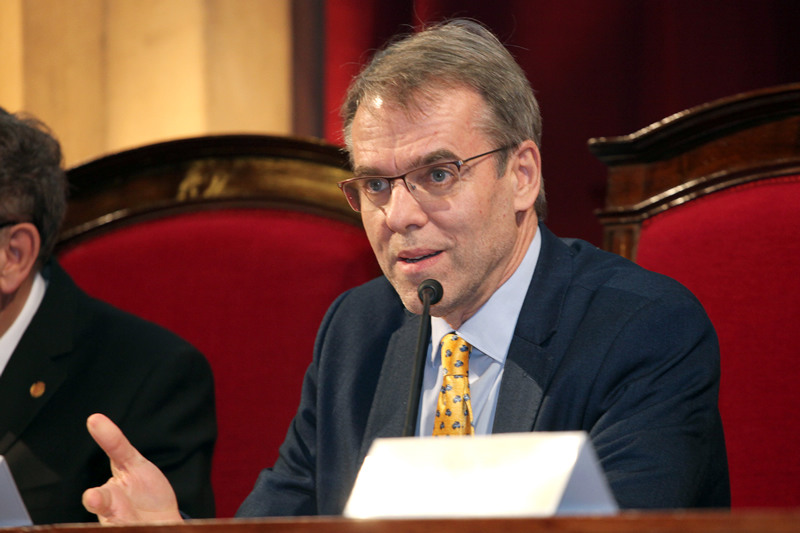
Dr. Oriol Amat
Designed as a guide for upper grade students, the book covers a gap in the field of research pedagogy, as Rocafort and Amat themselves point out in their prologue. The publication begins with a chapter of introduction to research, which is followed by a series of fundamental previous sections before starting any scientific work of higher education: selection of the director of research and possibilities to undertake research based on the skills and researcher’s skills. From there, the guide addresses the work prior to any scientific research, such as the review of the literature on the subject matter, the formulation of the initial question that the research should try to solve, the theoretical framework, the formulation of the hypothesis and the structuring of the work.
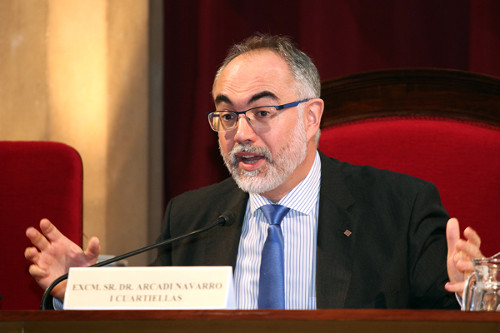
Dr. Arcadi Navarro
Already in matter, the book reviews the main methods of any scientific research, the collection of information and its treatment, analysis and interpretation. From here, several chapters distinguish the management of quantitative and qualitative data to reach a key point of work and the validation of the previous hypothesis. Five subsequent chapters analyse the particularities of research in terms of the different scientific fields: social sciences, health sciences, human sciences, experimental sciences and technological sciences, always directed by leading figures in their subjects. The work concludes with the last works of the researcher once he has built and argued his work: the writing, the presentation in public and the so-called transfer of technology and knowledge to society. Because the ultimate goal that any scientific research, the authors conclude, is no other than improving society.
The book counts with the collaboration of full academicians Jaime Rodrigo de Larrucea, Albert Bosch, Maria Àngels Calvo, Ángel Aguirre, Jordi Martí, Miguel Ángel Gallo, Josep Ignasi Saranyana and Josep Maria Sans, authors of some of the chapters of the work. The multidisciplinary nature of the members of the RAED complements and enriches a guide as practical as necessary.
